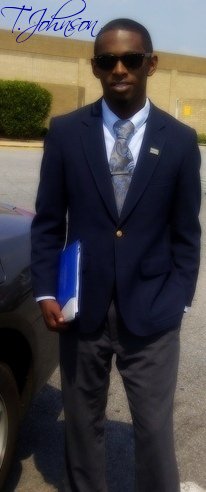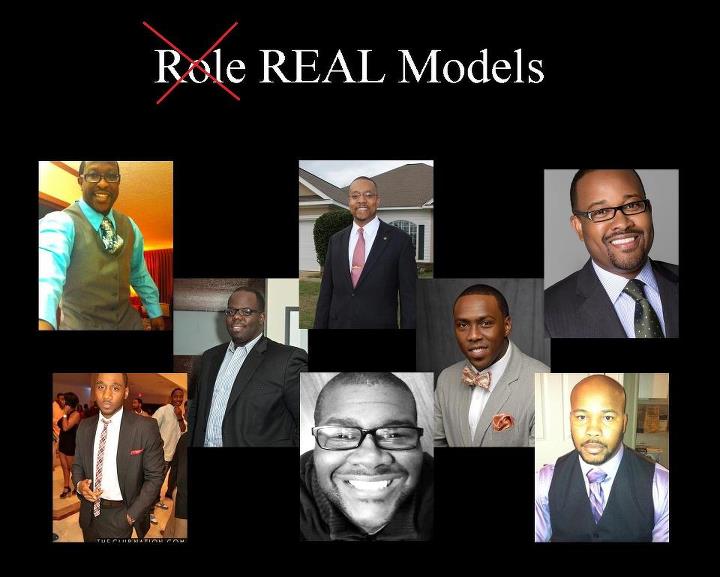contributed by T. Johnson
It has been my opinion that we all are born with the pre-disposition to want to have someone to look up to, someone to show us the way when we become lost, and someone that sees the best in us when we can’t see the best in ourselves. That person who shows us what “doing the right thing” looks like, what success looks like and how to find our own path. All too often, in the young lives of those who need them the most, this individual or individuals is seemingly nowhere to be found forcing them to look towards “the next best thing” the only other thing that has consistently played a role in their lives, media and the products of their environment.
The depth of this issue increasingly became obvious to me as I found myself in a classroom volunteering with under-privileged middle school students. I was getting to know some of the students when I came across a very interesting young man with his pants hanging off his behind. Before I instinctively told him to pull them up I couldn’t help but ask him why his pants were sagging? He informed me that it was a part of his “swag”, a “swag” that he picked up from his role model, a certain music artist who I shall not name. He then proceeded to tell me about how he knows every song by the artist word for word. I then asked if he knew how many continents there were, he did not. When I asked him what he wanted to be when he grew up he said an NBA player and while I praised him for setting goals I couldn’t help but ask him what drew him to his choice and he replied to me how, ever since he could remember, he’d always been told that a possessing a magic jump or rapping would be his only way out. Needless to say I was mortified and instantly, the issue here became apparent.
While there are always individuals that we look up to and self-define as the epitome of success these people, more often than not, are not easily accessible to us. When we think of figures like President Barack Obama and Dr. King, both of which I have read about, wrote about, and idolized, represent role models that project an image of success that proves to be inspirational to my entire race. As great as they are, that little boy who I met earlier can’t call President Obama for homework help, can’t rely on the writings of Dr. King to push him into higher education. It is in this capacity that the need for REAL models comes into play.
I can personally attest to the power of having REAL models present as I have been blessed to have come into contact with some great individuals who take the time to support and progress my goals on a daily basis and if it had not been for them I’m honestly not sure who I would be today. If REAL Models can have such an impact on me, as a grown man, imagine the level of influence they would have on the younger ones. The magnitude and role of Real time mentoring is powerful beyond measure in our communities. They are the teachers, the advisors, and the community leaders that take who selflessly take that extra mile to not just pursue the success of their own but that of those who look up to them. I have been mentored by a variety of individuals and in turn have become a mentor to dozens. Ladies and gentlemen, this is cycle we need to progress and promote.
I’ve come to learn that any issue is only as bad as you allow it to be and that notion holds to be true in regards to saving the children of our communities, reforming the image of “The African American Male” in its social context, increasing our representation on the campuses of colleges and universities nation-wide, and most importantly the transition from boys to men. Let’s change the statistics. I mentor, do you?
Follow him @iAmTee_Jay
& check out his blog http://iamteej.tumblr.com/

